Lest We Forget: Remembering Anzac Day in the light of Covid-19
Title: Lest We Forget: Remembering Anzac Day in the light of Covid-19
Artwork by: YMI X Lara Sim
Description: The resilient Anzac spirit is once again tested. This time, warfare is in the shape of a virus, Covid-19. Both Australians and New Zealanders are told to stay indoors (New Zealand is currently in a full-blown lockdown), because this simple act of staying home can help curb the spread of Covid-19.
But Aussies and Kiwis are no strangers to war. More than 100 years ago, they too responded to a war of a different kind, leaving loved ones behind for the dank trenches and for some, to their death, as they fought to defend their fellow countrymen.
Their valiant efforts, along with the many others who served and died in wars, conflicts and peacekeeping operations, are remembered in an annual national remembrance day, Anzac Day, held on April 25th.
ANZAC is an acronym for the Australian and New Zealand Army Corps; the Anzac symbolises bravery and mateship.
This Anzac Day, as we recall and remember the sacrifices these men had gone through, may it inspire us to practise and apply the very same ideals in our current “war”.
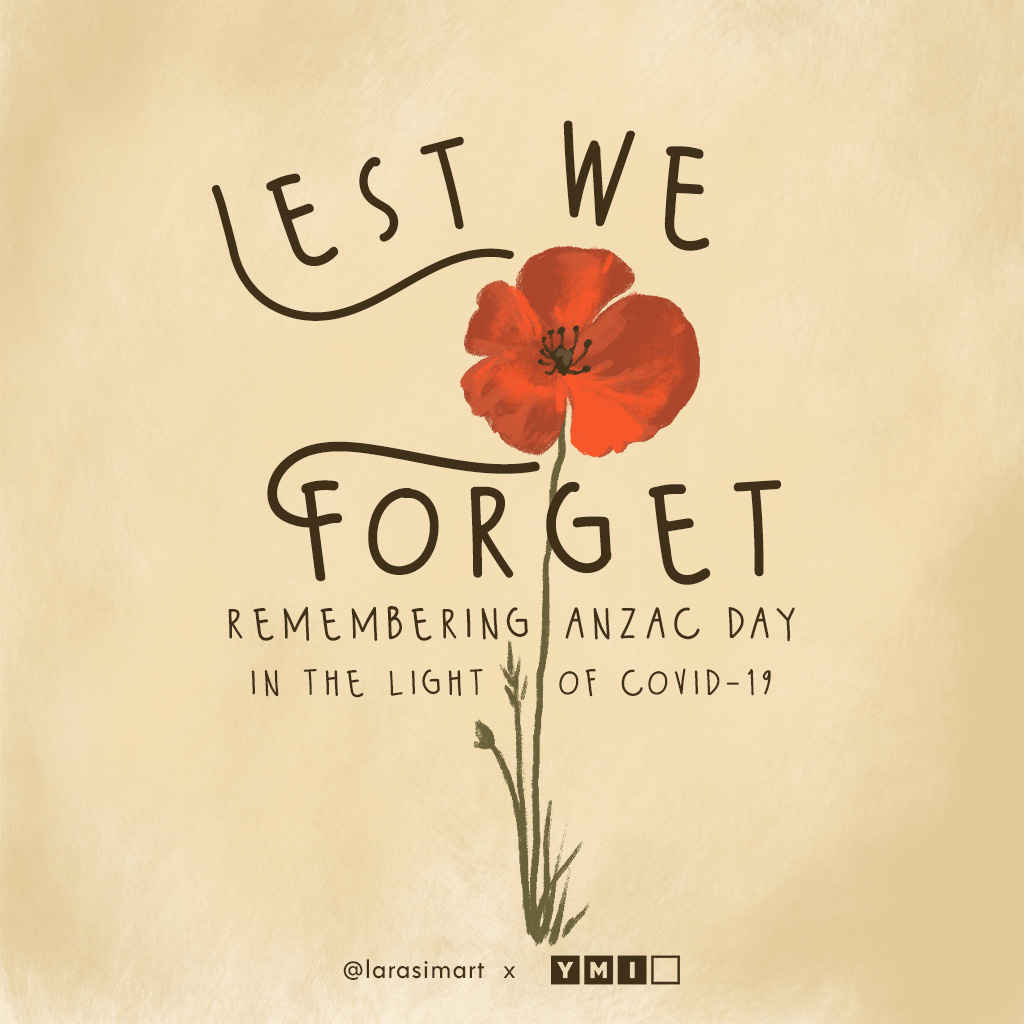
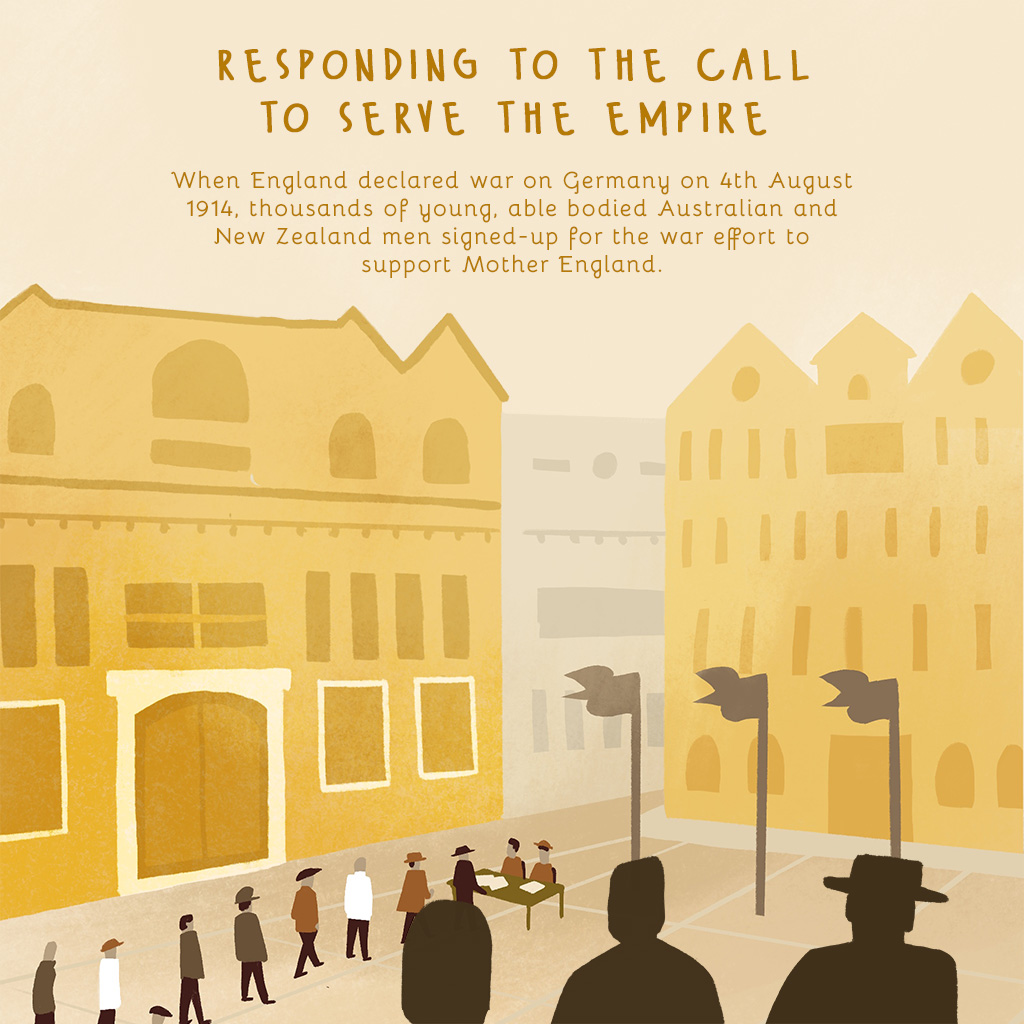
Today, in the light of Covid-19, both the Australian and New Zealand Government has put out a call too. This time, it’s not about heading overseas to defend these countries, but rather to stay indoors because it saves lives, the lives of those more vulnerable or susceptible to the virus.
But more than 100 years ago, when England declared war on Germany on 4th August 1914, thousands of Australians and New Zealanders signed-up for the war effort, eager to support Mother England. Young, able bodied men cycled, walked, or hitched rides with mates, travelling for miles to major cities to sign-up. They were keen to serve their country.
Australian author and journalist Paul Byrnes wrote in his book, The Lost Boys: “One-third of all Australians had been born in Britain. Their leaders, even more British-born, were keen to show the Mother Country that Australia had overcome her convict ‘origins’ and produced a vigorous ‘race’ of southern whites, loyal to the Empire”.
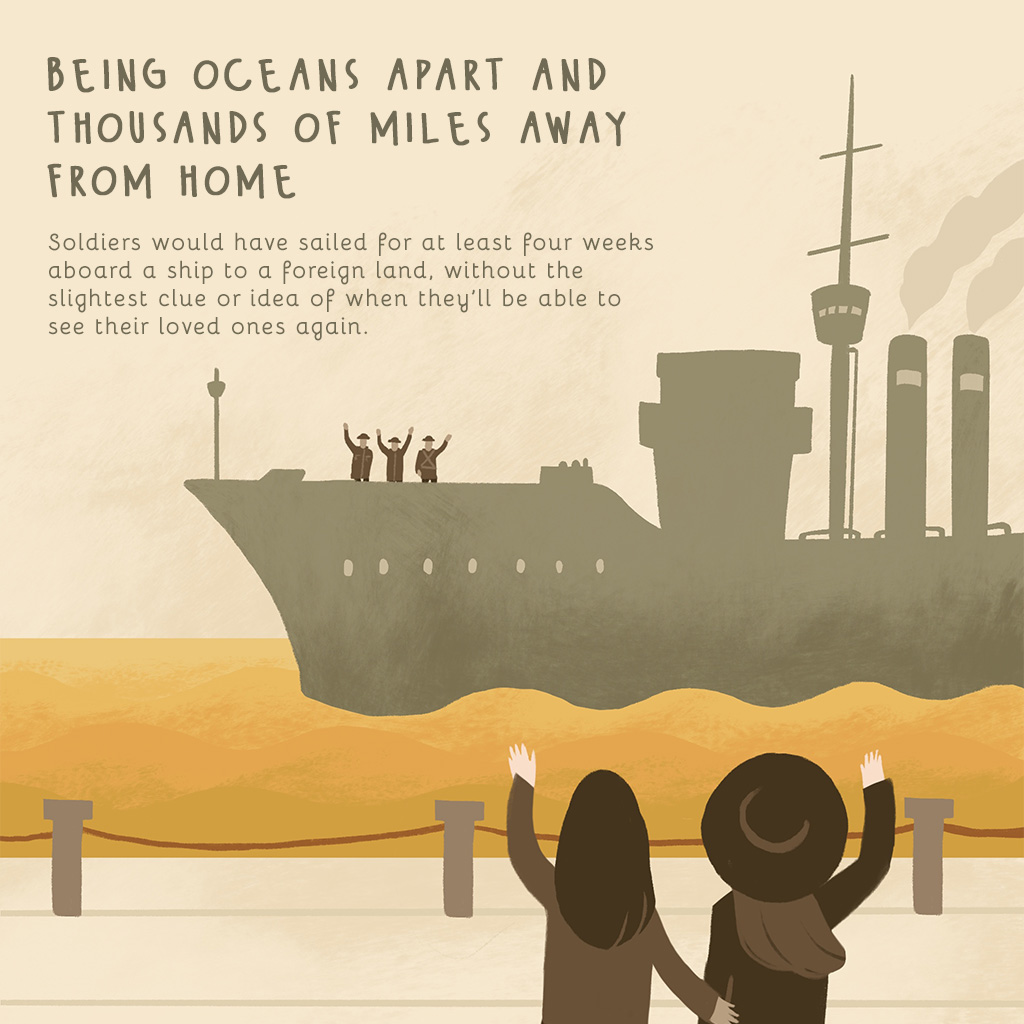
We’ve been asked to practise social distancing, of standing 1.5 metres apart. But we can still keep in touch with chat apps, or emails, or phone calls.
But for these brave soldiers, “social distancing” meant leaving their friends and family behind for distant shores. These soldiers would have sailed for at least four weeks aboard a ship to a foreign land, without the slightest clue or idea of when they’ll be able to see their loved ones again. Lonely and homesick, these soldiers would anxiously wait for mail to arrive. But letters can take as long as two months to arrive, and the news of mail being delivered is enough to cause excitement in camps, but alas, as one soldier noted, “they are very irregular, and far between”. Soldiers would retire to their respective corners to savor news from home. However, replying to letters can be challenging as papers were scarce, and it was hard finding a proper place to write.
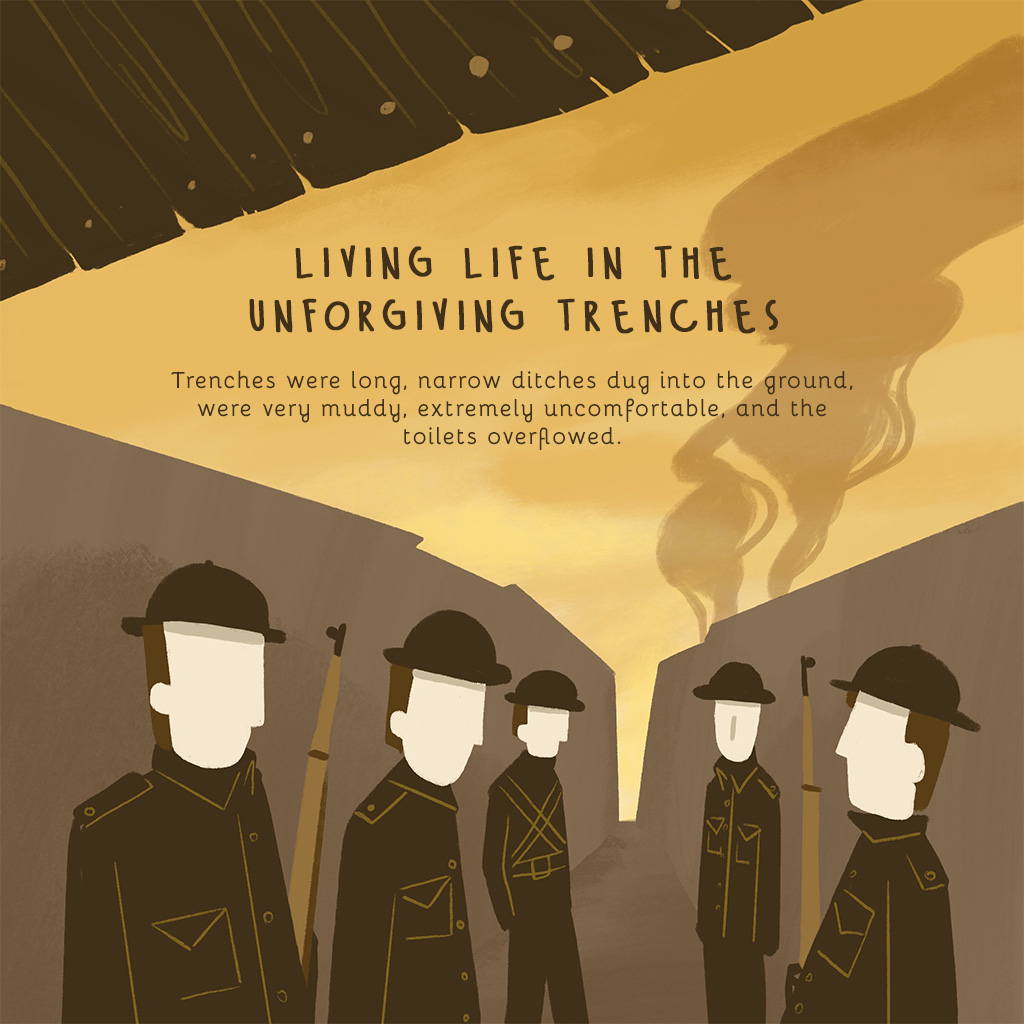
The war we’re currently asked to fight requires us to stay home, surrounded by our creature comforts. It might be dull, and cabin-fever inducing, but it’s nothing compared to the harsh environments these soldiers have to endure in the trenches.
Trenches were long, narrow ditches dug into the ground, were very muddy, extremely uncomfortable, and the toilets overflowed. Winter in the trenches was the hardest for the soldiers. Mud was frozen solid, with snow metres deep, and the air temperature at night fell to an unenviable -17C.
Australian soldier Eugene Sullivan wrote: “Everything here [in the trenches] is frozen, and the only thing that keeps us alive is a fire. Our towels are frozen stiff and hard in the mornings when we go to use them, also our sponges, nail [brush] and toothbrushes. All the water is in blocks of ice and has to be thawed out and most of the medicines too, are in solid form”. Another soldier, Archie Barwick, wrote how he missed the “good old sunny days of Australia, the finest place in the world”, and how he looked forward to “returning to her, never more to roam”.
These soldiers were out in the open, severely exposed , with no protection from the elements. More than 20,000 Australian men were evacuated during the winter of 1916-17, suffering from exhaustion, pneumonia, trench feet (infection of the feet caused by cold, wet and insanitary conditions) and frostbite.
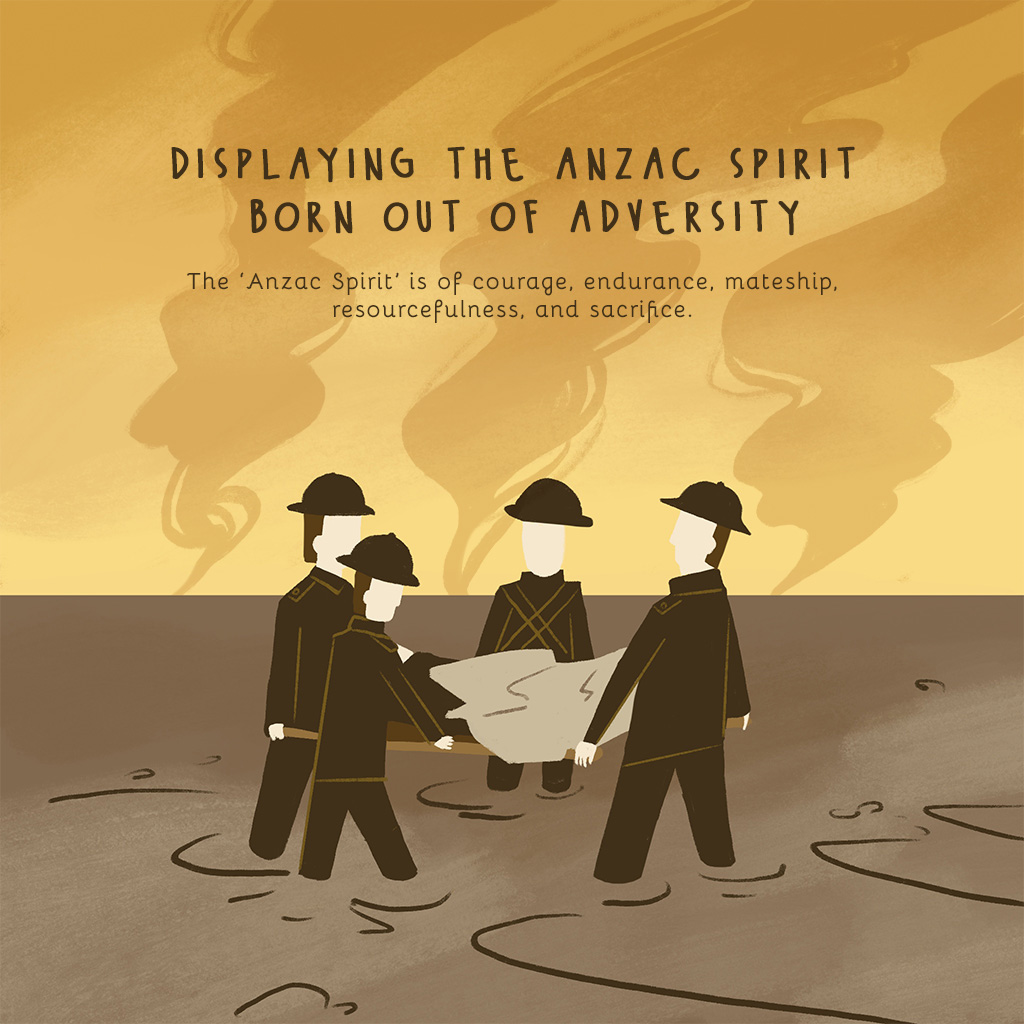
How are we looking after our mates during this difficult time? Are we bent on breaking the rules, by continuing to head out whenever we feel like it despite advice from authorities to do otherwise? Are we overstocking our pantry, leaving nothing for others to buy? The Anzac soldiers had none of these selfish qualities. Instead, they displayed the ‘Anzac Spirit’ of courage, endurance, mateship, resourcefulness, and sacrifice.
This characteristic can be seen in the stretcher bearers, risking life and limb, ducking out under the cover of night to rescue injured men. Stretcher bearer Wilfred Allsop recounted: “ It’s awful carrying patients at night, not only for the slippery mud and shell holes, but also on account of the dazzling and nerve-racking flashes from our own guns…numbers of our men are now cracking up under the strain”.
It’s not an easy task carrying strong, fully-grown men in the treacherous environment, and often the stretcher bearers found themselves slipping into water holes or muddy marshes, only to emerge covered in thick mud from head-to-toe.
Yet they continued with their mission night after night, as they didn’t want to let their fellow countrymen down.
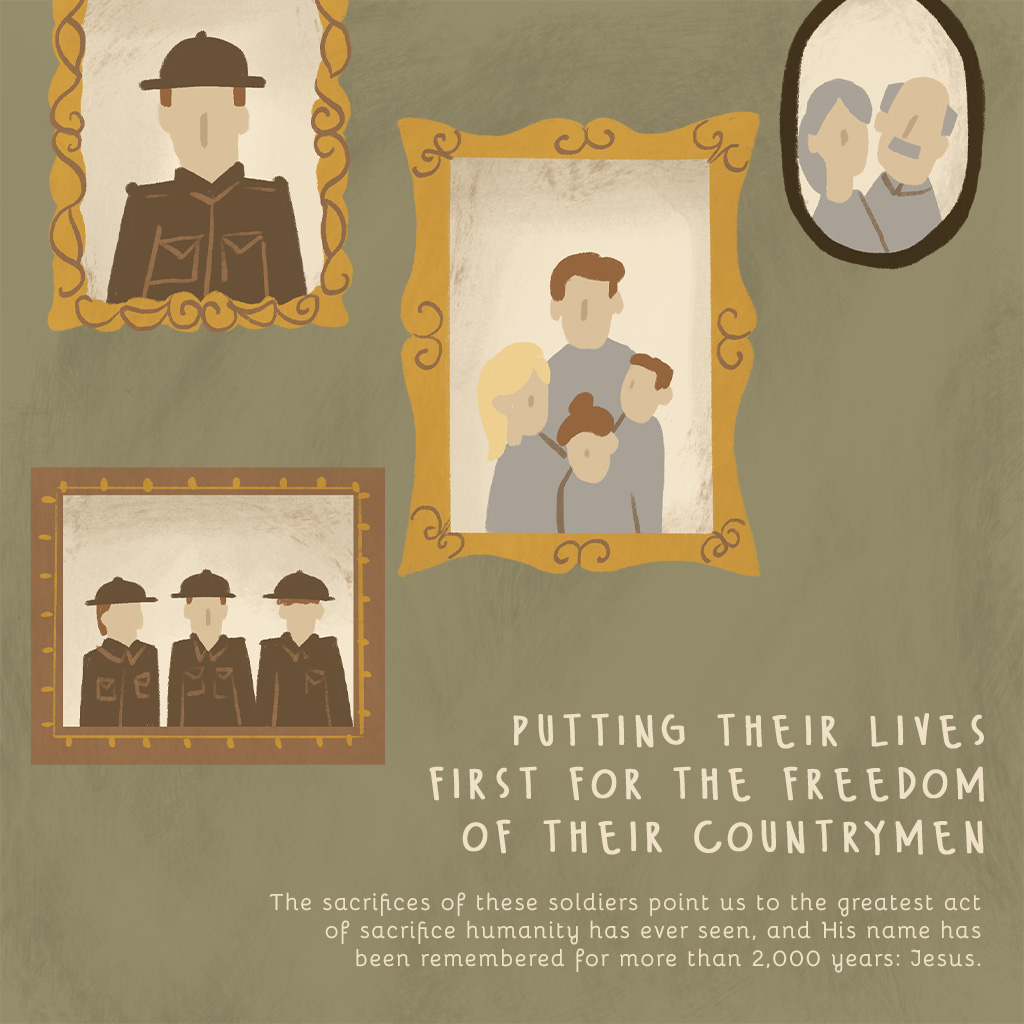
The poem, “For the Fallen”, written by Laurence Binyon is often recited at the Anzac Day dawn parades. It remembers the sacrifices of soldiers who put their lives first for the freedom of their countrymen. These brave men “shall not grow old, as we that are left grow old”. Anzac Day is about remembering and commemorating the fallen, and also those who served bravely in the other wars.
But let’s not stop at commemorating these human heroes. Their sacrifices point us to the greatest act of sacrifice humanity has ever seen. And his name has been remembered for more than 2,000 years: Jesus. Out of His great love for us (John 3:16), He went to the cross in exchange for our sins, so that we could live. Scripture says greater love has no one than this, to lay down one’s life one’s friends (John 15:13)
Anzac troops went to war, fighting on foreign soil, for our freedom. Jesus, died on the cross for us, to set us free from sin (Galatians 5:1).
So, in the midst of this Covid-19 pandemic, we too can do our part for the sake of our countrymen. Living under the restrictions placed on us, temporarily giving up our rights for others, are little sacrifices that we can do now so that one day, we’ll once again be able to head out into the open streets to embrace those dear to us.



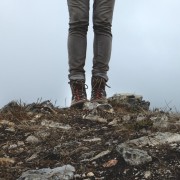



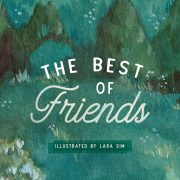
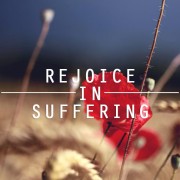

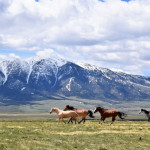
Leave a Reply
Want to join the discussion?Feel free to contribute!